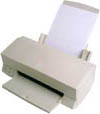The Interjection
Recognize an interjection when you find one.
To insert short bursts of emotion, you can use an interjection, which is a single word, phrase, or short clause that communicates the facial expression and body language that the sentence itself will sometimes neglect to capture.
Interjections are thus like emoji. One writer might write the sentence like this:
The burrito is vegan. :-)
Or like this:
The burrito is vegan.
Yet another writer might use an interjection to express that same burst of happiness:
The burrito is vegan. Yum!
The interjection yum lets us see an emotional response. If the writer was really hoping for spicy ground beef in the burrito, notice how a different interjection communicates that disappointment:
The burrito is vegan. :-(
The burrito is vegan.
The burrito is vegan. Yuck!
Interjections are common in spoken English, so they are appropriate if you are capturing dialogue in your writing.
Read this example:
My colleague in the physics lab shouted, "Hooray! They made the right decision!" when she learned that the International Astronomical Union (IAU) demoted Pluto to dwarf planet.
Interjections are also appropriate in informal communication, like texts or emails to friends:
Groovy! IAU demotes Pluto!!!
But when you read, you will notice that writers seldom use interjections in professional publications like textbooks, newspapers, or magazines. Never, for example, would an important science journal include a sentence like this one:
Oh, snap! The IAU has added gravitational dominance as a requirement for planethood.
Good writers know that careful word choice can capture the same emotion and body language that the interjection communicates. In the sentence below, we recognize the writer’s unhappiness even though we find no interjection:
Worse than the refried beans was the disappointment that spread over my tongue as I bit into the vegan burrito.
Know the different kinds of interjections.
Some words are primarily interjections. Below is a list.
Interjections bazinga
blech
boo-yah
duh
eek
eureka
eww
gak
geez
hahello
hooray
huh
oh
oops
ouch
oy
ugh
uh-oh
whammowhew
whoa
wow
yahoo
yikes
yippee
yo
yowza
yuck
yumHowever, any word, phrase, or short clause that captures an emotional burst can function as an interjection. So if you write, Emily has switched her major to chemistry, you could use an adjective, for example, as an interjection:
Sweet! Emily has switched her major to chemistry.
A noun or noun phrase would also work:
Congratulations, Emily has switched her major to chemistry.
Emily has switched her major to chemistry. Way to go!
Holy macaroni! Emily has switched her major to chemistry.
Or you could use a short clause:
Emily has switched her major to chemistry. She rocks!
Notice that the sentence itself, Emily has switched her major to chemistry, does not provide an emotional reaction to the information. The interjection does that job. And remember, everyone might not be congratulatory and happy:
Emily has switched her major to chemistry. Oh, the horror!
Know how to punctuate interjections.
Punctuation for an interjection will depend on the emotion and body language you hope to capture.
Strong emotions, such as anger, excitement, or surprise, need an exclamation point ( ! ) to communicate the intensity.
Ugh! I cannot believe we are eating leftover vegan burritos for a third night.
Yowza! An astrophysicist is dancing in the hallway!
An interjection meant to illustrate confusion, uncertainty, or disbelief will require a question mark ( ? ) to help capture the open mouth, shrug, blank look, or rolled eyes.
Huh? You want me—the person with a D average—to help with your calculus homework?
Oh, really? You killed a rattlesnake with that plastic salad fork?
A comma ( , ) or period ( . ) will indicate weaker emotions, like indifference, doubt, or disdain. These two marks of punctuation dial down the volume on the sentence.
Meh, I do not really care that Pluto is no longer a planet.
Pssst. Do you have the answer for number 7?
Here comes Professor Phillips. Uh-oh, did he catch sight of your cheat sheet?
George is skipping class even though our group presentation is due today. Typical.
©1997 - 2025 by Robin
L. Simmons
All Rights Reserved.
